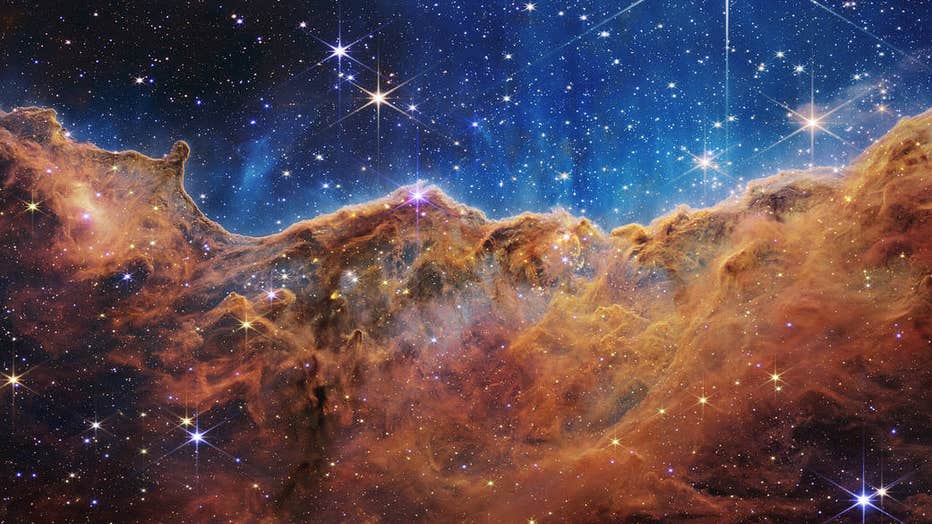The Webb telescope found 20 new exoplanetary systems. Here’s how you can help name them
The James Webb telescope is peering farther into the universe than ever before, and now, the celestial objects it’s finding along the way need names.
The International Astronomical Union, the organization tasked with naming celestial objects, is launching a contest to name 20 exoplanetary systems — or planets orbiting other stars — that the long-awaited telescope has discovered. Organizers say the contest, NameExoWorlds 2022, "invites communities across the globe to connect their own cultures to these distant worlds."
The James Webb — the world’s largest and most powerful telescope — launched in December 2021 and traveled a million miles to its final destination.
NASA released its first images from Webb in July. So far, it has vastly exceeded expectations, despite being permanently damaged by a micrometeoroid.
With Webb, scientists hope to glimpse light from the first stars and galaxies that formed 13.7 billion years ago, just 100 million years from the universe-creating Big Bang. The telescope also will scan the atmospheres of alien worlds for possible signs of life.
RELATED: James Webb Space Telescope captures stunning new image of Cartwheel Galaxy
NASA Administrator Bill Nelson has described Webb as a time machine that will provide "a better understanding of our universe and our place in it: who we are, what we are, the search that’s eternal."
How to enter the NameExoWorlds 2022 contest

Image captured by James Webb telescope (NASA)
To enter, contestants must first build a team comprised of students and teachers, astronomy enthusiasts, amateur astronomers, and professional astronomers, according to the IAU. The team will then have to:
- Conduct an astronomy outreach event related to exoplanets.
- Choose a system from the 20 ExoWorlds on the list.
- Propose a name for the exoplanet and its host star in your language and provide an explanation of the cultural context.
- Register your team and submit your naming proposal (written format + video)
Names you can’t use
Sorry, Fido. You won’t be naming the exoplanetary system after your dog, grandmother — or yourself. The contest has a long list of names that won’t be accepted. When coming up with a name, organizers say to consider "things, or places of long-standing cultural, historical, or geographical significance, worthy of being assigned to a celestial object."
The following submissions won’t be accepted:
- Names of real people, living or dead, or things or places named wholly or partly for people
- Names already used (or rather "in use") for specific celestial objects (adopted by the IAU or not) in a given language
- Contrived (new, invented) names and portmanteaus (blends of parts of multiple words). Exception: Multi-word names may be combined in some cases.
- Names that are principally known as trademarks or protected by intellectual property claims, or are purely or principally commercial in nature
- Names of things principally known for political, military or religious activities, for example nations, states, battles, places of worship, etc.
- Names that include numbers or punctuation marks (unless culturally appropriate)
- Names of organizations related to the selection
- Names of pet animals
- Acronyms
According to IAU, the submissions will go through a two-step selection process. First, a national selection panel will select a national candidate and two backup names. Then a final selection committee will consider the candidates proposed by each country and select a name for each ExoWorld.
The names will be selected based on the description and meaning behind them, as well the outreach activities held by each team, organizers said.
The Associated Press contributed to this report.

